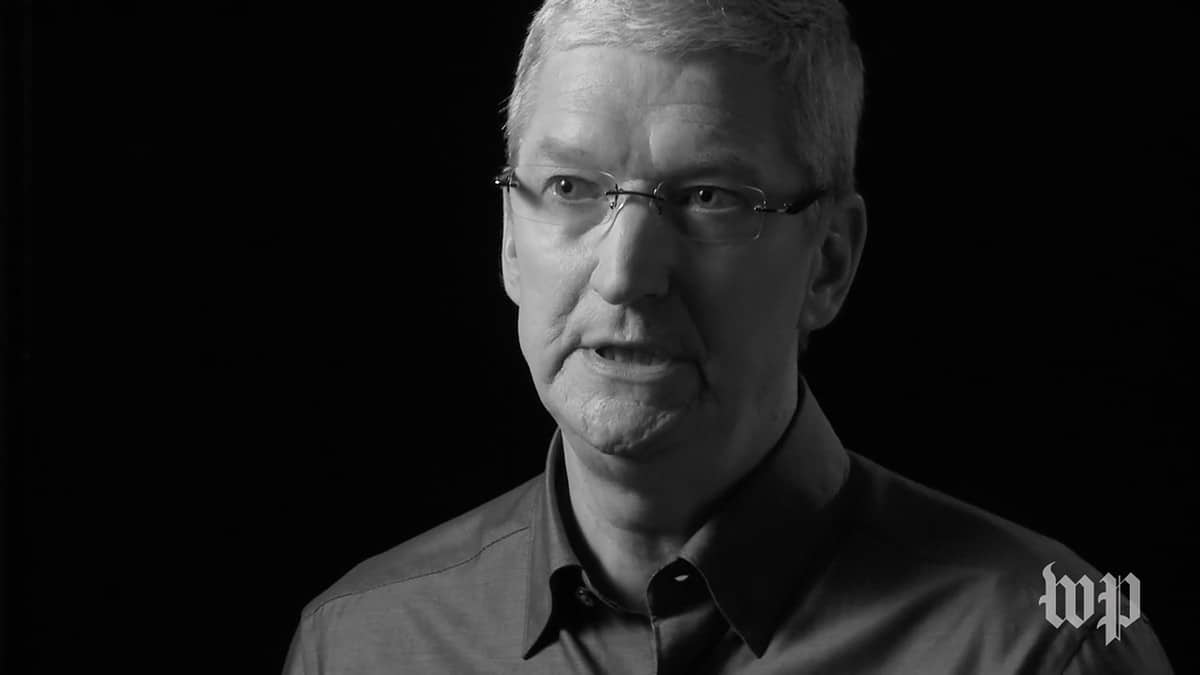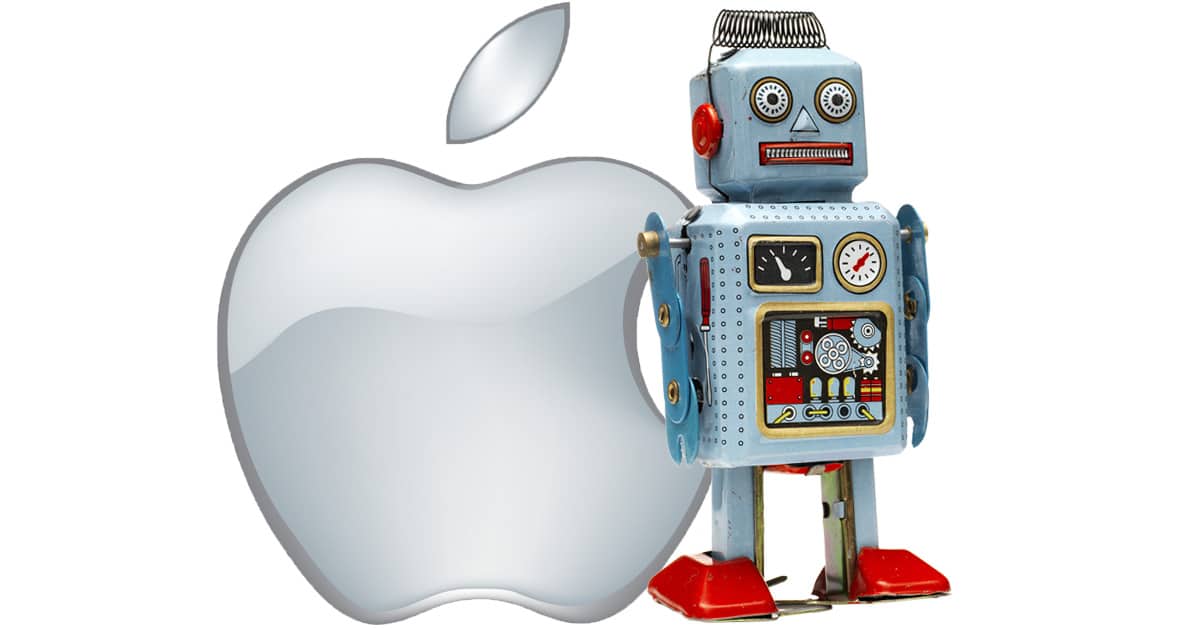The best analyst questions during Apple’s Q4 2016 Financial Results came from Simona Jankowski with Goldman Sachs. She asked Tim Cook about his perspective on home vs. mobile artificial intelligence (AI) agents and then the issue of privacy. Tim Cook took a solid stand on both questions that reveal the future direction of Apple.

Q: “There’s been an increasing focus on artificial intelligence both in new smartphones like the new (Google) Pixel and also some of the home assistants like the Amazon Echo… How do you think about balancing AI with your focus on privacy. And then how important is it to have a dedicated home assistant versus just having the phone as the home assistant?”

Tim Cook replied in detail, tackling the second part of the question first.
A: I think that most people would like an assistant that’s with them all the time. We live in a mobile society. People are constantly moving from home to work…. And so the advantage of having an assistant on a phone is that it’s with you all the time. That’s not to say that there’s not a nice market for a home one … on balance the usage on a phone will be much greater. Just look at Siri today. This is now accelerating with iOS 10 and the Mac… we’ve been getting two billion requests a week. Our focus on this is worldwide, so it’s not only a U.S. focus. We want to deliver a great experience around the world.
In terms of the balance between privacy and AI, and this is a long conversation, but at a high level, I think it’s a false trade-off—that people would like you to believe. That you have to give up privacy in order for an AI to do something for you. We don’t buy that. It make take a different kind of work. It may take more thinking. But I don’t think we should throw privacy away…. That at a high level is how we feel.

Perspective
The comment by Mr. Cook about home devices certainly doesn’t rule out Apple building a home device like the Amazon Echo or Dot. But clearly Mr. Cook is emphasizing a vision for how Apple wants Siri to work. It has been said that the best camera is the one you have with you. It appears Apple also feels that the best AI agent is the one in your pocket, available in multiple languages, all around the world.
This is also a dramatic clarification for those who suggest that Apple must rush to duplicate every product developed by other tech giants. Apple has a very clear vision for the operational model of a personal AI, and it’s not a stationary device on the kitchen table. Yet.
With respect to privacy, this is a more complex issue than Mr. Cook wanted to get into. He did indeed point out that it is a “long conversation.” That’s likely because a truly self-aware AI has to have a lot of personal information at its fingertips and be very situationally aware before it can perform many of the tasks we desire. Or think we desire.
Even so, Mr. Cook addressed the problem at a high level. Rather than taking the easy route, Mr. Cook is saying that Apple is going to do more of the tough thinking to make sure that we can have both a smart, useful AI and still preserve our privacy.
That could happen with advanced AI security techniques, more local processing, or other (difficult) methods that Apple may develop. But Mr. Cook’s sense of values, that an AI should serve and protect, is a testament to the culture of Apple and how it intends to set itself apart from the competition.
Because of this technical gauntlet that Mr. Cook has laid down, Apple may well appear to be behind the competition, for a time, when it comes to the “IQ” of its AI Siri.
These are all signposts on the highway that reveal how Apple intends to proceed. We should fold them into our thinking about Apple.

There is a concerted effort (or it appears concerted, at least) to gradually twist society’s values towards viewing the loss of privacy as either unimportant or inevitable. And surprise, surprise the people leading this charge are Google, Facebook, and Amazon. (The first salvo was fired by Eric Schmidt in 2009 proclaiming “If you have something that you don’t want anyone to know, maybe you shouldn’t be doing it in the first place.”)
Unwittingly complicit in this are millennials and their cavalier attitudes about online privacy. No, millennials aren’t particularly deserving of opprobrium, every generation was in some way dangerously stupid, shortsighted, and unthinking in their early adulthood; in my day it was driving recklessly and/or under the influence.
Aside from the obvious risk of increased opportunities for fraud and theft, there is a long term threat to society that relaxed attitudes towards privacy evolves into a downgrading of the right to privacy and the loss of civil rights and protections that flow from that right. Yes, that might be inconceivable today but 30 years ago who could have imagined that 35-40% of the US electorate would support a presidential candidate who spouts openly pro-authoritarian intentions? In a few years, millennials will become the dominant demographic bloc in the US electorate.
The commercially motivated effort to devalue privacy has to be stopped now but few people in the US seems bothered enough about it, certainly not in the Federal government. Contrast that with Western European attitudes, especially in Germany and France.
The importance of privacy in all these products cannot be overstated. How long will it be before criminals use hacking techniques on home automation devices to figure out when you are home or away? How long before your personal assistant becomes the assistant of some hacker harvesting sensitive information on you? One big story of such things happening will convince most people of security when it comes to products that are connected to the world.
Regarding privacy, everyone wants it except the Type “B” personalities.
The Type “B” personality Tech Journalists will always be the loudest, the most boystrous and strangely tyrannical about eschewing privacy and proclaiming that the people who want privacy are somehow “The Problem With The Internet”.
If privacy was such a terrible problem, then let no home have doors inside, no blinds or drapes on any windows, and let us all have a big name tag plastered across our chest with our home address.
Privacy is freedom. Anytime someone tells you that privacy is unnecessary, question their motives. Ask yourself why they want to take your freedom away. Often once you answer that question, you will see that they are building a cage around you, and that THEY hold the key.
Is Apple looking out for your best interests? NOPE. But they still let the user hold the key. As soon as they take that key away, RUN!
brett_x : It’s Apple’s job via marketing to inform and make people care. If Apple fails to make the case, in contrast to how they did so well with encryption, it will be a sad story to tell.
As a consumer, I like that Apple seems to be concerned about privacy. However, as a small investor, I’m not sure that it is that important because I don’t know how many people overall will really care or ever receive that message in the first place.
How many people are okay with Google knowing everything about them vs people that don’t use Google search and [especially] email? Heck even I use google search. I limit certain aspects of it (through ghostery etc), but I use it for most things. Why? The cost of reduced privacy is outweighed by the search results, ease of use, and probably most important: familiarity.
I am just not convinced that the masses will be so concerned about privacy that they will not buy an Alexa, Echo, Google Home or whatever other companies are selling. I just don’t think it’s on their radar if it gets them what they want.. an easy to use device that they don’t have to fully understand. In fact, in this case, the device is supposed to understand them. As long as it does that, I don’t think they’ll care about much else.
I like Tim’s answer about privacy and security, and TMO’s expansion of it. This is one of the reasons smart people like Apple products.
I just hope we see an expansion of AI / Siri’s capabilities too in the near future. If, as Cook said, Siri is getting 2 billion requests per week (roughly 200,00/minute if my math is right), the back end services as well as the local capability have to be robust and reliable in addition to safe and secure. Improved Siri capabilities would mean several orders of magnitude more requests.